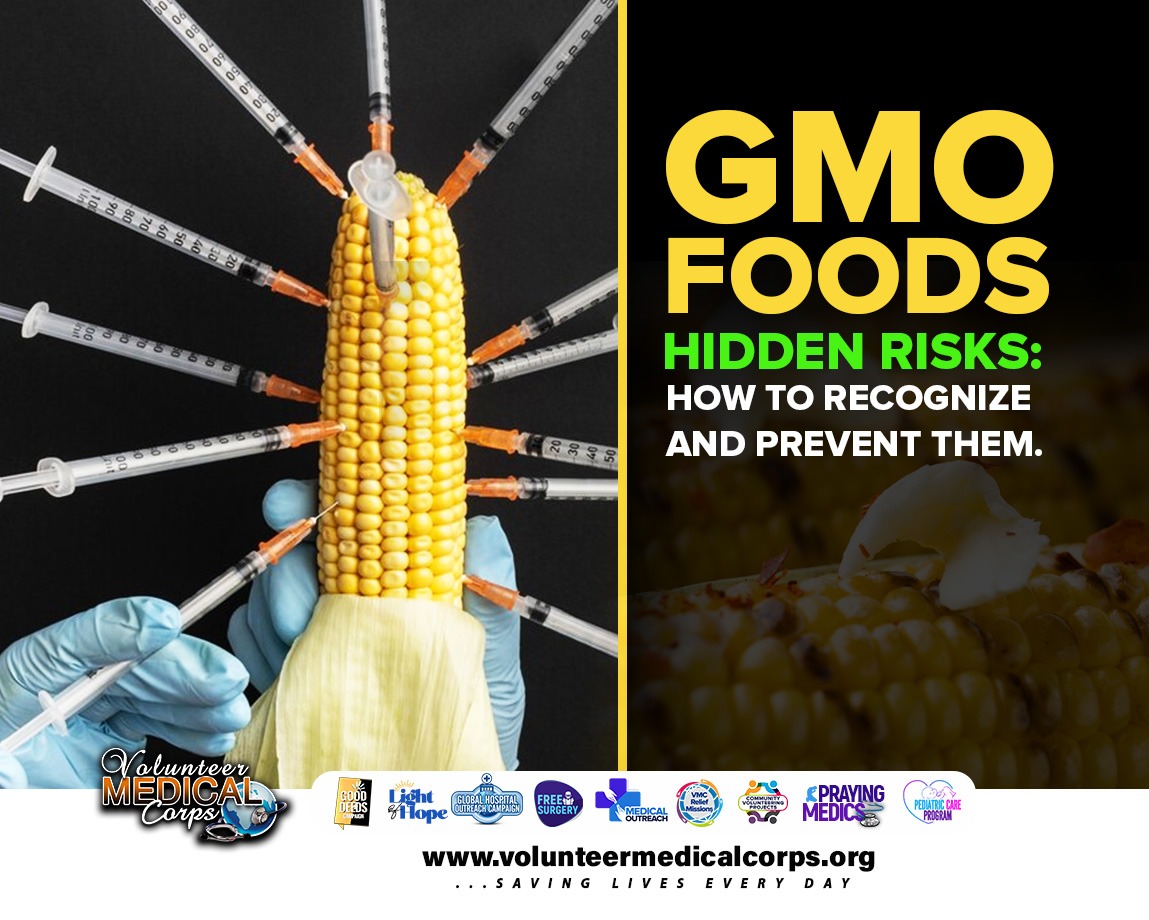
Recognizing GMOs: Living things that have had their genetic makeup changed in a lab via genetic engineering are known as genetically modified organisms. Genes from one species are frequently inserted into another in this kind of modification in order to confer particular features, such as tolerance to pests, herbicides, or harsh environmental conditions.
GMOs' proponents contend that they can help address issues with global food security, but critics have raised serious concerns about their safety and potential long-term health impacts. It's critical for all consumers to be aware of the possible dangers linked to genetically modified foods and to learn how to recognize and steer clear of them.
The Hazards of Genetically Modified Foods:
1. Health Concerns: One of the main concerns about GMOs is how they can affect people's health. GMOs are supposed to go through extensive safety testing, yet research has shown that they may also be poisonous, prone to allergies, and have other negative health effects.
2. Environmental Risks: Genetically modified crops that are resistant to pests or herbicides may give rise to superweeds and superbugs that are also resistant, which may increase the need for chemical pesticides and herbicides.
3. Contamination of Non-GMO Crops: Organic and conventional crops may unintentionally become contaminated by cross-pollination between GMO and non-GMO crops, jeopardizing their native integrity and purity.
4. Private/Corporate Control: With the growing use of genetically modified crops, worries over corporate dominance of the food supply have arisen. The GMO seed market is dominated by a limited number of biotechnology companies, raising worries about creation of monopolies and the gradual marginalization of small-scale farmers
How to Spot and Steer Clear of GMO Foods:
1. Select Certified Organic food products: Since GMOs are prohibited in organic products, choosing certified organic foods might help you stay away from them.
2. Read Product Labels Carefully: Search for anything marked "non-GMO" or "GMO-free." Learn about common GMO crops like cotton, soy, corn, and canola, and keep an eye out for these products in ingredient lists.
3. Purchase in-season and locally farmed produce: Produce cultivated locally has a lower chance of genetic modification. You can get fresh, in-season vegetables by shopping at farmers' markets.
4. Steer clear of processed foods: canola oil, soy lecithin, and corn syrup are just a few examples of substances that are frequently sourced from genetically modified crops. When possible, choose entire, unprocessed meals.
5. Encourage GMO Labeling Programs in your community: Encourage the labeling of GMO foods to be clear and transparent so that consumers may make knowledgeable decisions about the goods they buy.
Admin